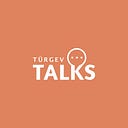Snowden — A brief analysis Excerpts from a talk delivered by Zulfiqar Awan
The movie covers Snowden being discharged from the military after an injury in basic training, meeting his girlfriend, and training in the CIA with mentors.
Snowden then goes undercover, only to see an operation turn ugly; becomes a contractor for the CIA and NSA; and finally chooses to leave the intelligence community and disclose its vast surveillance apparatus, some of which he helped develop.
He is seen as:
• Hero
Villain
Traitor Whistleblower
Themes we shall cover in this class:
• His injury as the path to freedom
• Security vs Liberty — the modern state
• Surveillance capitalism
His Injury:
After injury kills his dream of being a soldier, Snowden finds success as a government intelligence agent.
The injury, then led him on a path of conflict, justice and truth.
His falling was an act of his Daimon
“Sooner or later something seems to call us onto a particular path. You may remember this “something” as a signal moment in childhood when an urge out of nowhere, a fascination, a peculiar turn of events struck like an annunciation: This is what I must do, this is what I’ve got to have. This is who I am.” (The Soul’s Code: In Search of Character and Calling, James Hillman)
There is an idea, prominent among some thinkers, that we all possess a personal calling, a destiny unique to us alone. Our primary purpose in life, according to this idea, is to follow this calling and fulfil our destiny.
This idea has ancient origins; Plato weaved it in mythic form in his Myth of Er. Before we are born, so the myth goes, our soul chooses a purpose for us to fulfil on earth. Prior to birth we pass through the forgetful river at Lethe and, drinking from its waters, emerge into life ignorant of the fate our soul had chosen for us. Yet we are accompanied on this earth by a daimon, a spiritual companion, who acts as a “carrier of our destiny” and ensures we fulfil the fate our soul had chosen before birth.
Heraclitus, prior to Plato, stated that “a man’s daimon is his fate”. The daimon for Heraclitus, was a sort of force or inner law which determines the course of one’s life.
In line with this idea, Robert Greene, author of the book Mastery, noted that throughout history many geniuses have spoken of a daimon, or inner voice, who accompanied them throughout life:
““For Napoleon Bonaparte it was his “star” that he always felt in ascendance when he made the right move. For Socrates, it was his daimon, a voice that he heard…which inevitably spoke to him in the negative — telling him what to avoid. For Goethe, he also called it a daimon — a kind of spirit that dwelled within him and compelled him to fulfil his destiny. In more modern times, Albert Einstein talked of a kind of inner voice that shaped the direction of his speculations. All of th
ese are variations on what Leonardo da Vinci experienced with his own sense of fate.” (Mastery, Robert Greene)
For Snowden, his injury was the calling that moved him away from the body (soldier) to the intellect (analyst), in preparation for his heroic journey of exposing the lies of the American state.
Security vs Liberty
This is a very important dialogue that took place between Snowden and his superior. It’s the main theme running through the movie.
Rhys Ifans (as Corbin O’Brian): “Most Americans don’t want freedom. They want security.”
Joseph Gordon-Levitt (as Edward Snowden): “Except people don’t even know they’ve made that bargain.”
A look at the genealogy of the modern state:
This book describes how global tech companies such as Google and Facebook persuaded us to give up our privacy for the sake of convenience; how personal information (“data”) gathered by these companies has been used by others not only to predict our behaviour but also to influence and modify it; and how this has had disastrous consequences for democracy and freedom. This is the “surveillance capitalism” of the title, which Zuboff defines as a “new economic order” and “an expropriation of critical human rights that is best understood as a coup from above” (Surveillance Capitalism, Soshana Zuboff)
“Such violations threaten our freedom, Zuboff says. “When we think about free will, philosophers talk about closing the gap between present and future. We make ourselves a promise: I’ll do something with that future moment — go to a meeting, make a phone call. If we are treated as a mass of ‘users’, to be herded and coaxed, then this promise becomes meaningless. I am a distinctive human. I have an indelible crucible of power within me… I should decide if my face becomes data, my home, my car, my voice becomes data. It should be my choice.”
Surveillance capitalism is an economic system centred around the commodification of personal data with the core purpose of profit-making. Since personal data can be commodified it has become one of the most valuable resources on earth.
Zulfiqar Awan
